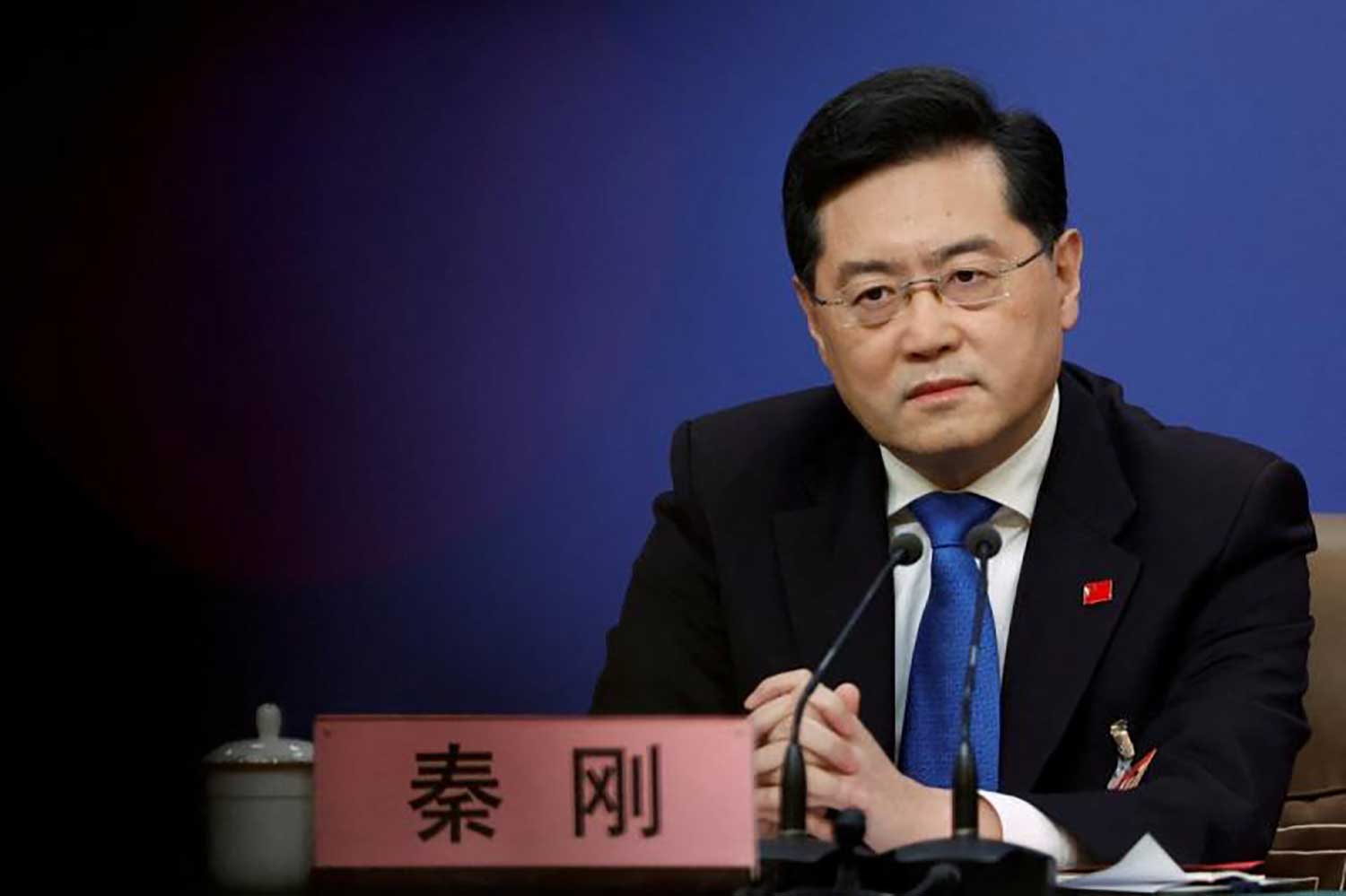
China remains committed to a "healthy, stable and constructive" relationship with the US amid still "chilly" bilateral ties, Chinese Foreign Minister Qin Gang told visiting American business leaders on Saturday.
At a meeting with US trade organisations and business representatives in Beijing, Qin assured his audience that China will continue to build a better business environment for foreign companies from all countries, including the US, and to welcome the expansion of investments in China.
The meeting came as China works to attract foreign investment at a time of slower economic growth, soaring local government debt, a shrinking population, high youth unemployment and global economic and geopolitical uncertainty.
Among the American attendees were Cristiano Amon, president and CEO of Qualcomm, Albert Bourla, chairman and CEO of Pfizer, Craig Allen, president of the US-China Business Council, and Ray Dalio, founder of the world's biggest hedge fund Bridgewater Associates, according to a photo in the statement released by the Chinese foreign ministry.
Qin said that China will ensure its major policies are stable and continuous, and he added that China will open even wider to the outside world as the Chinese economy and society usher in a "strong recovery".
All of this will benefit the American business community, Qin said, even though "regrettably, the current China-US relationship remains as chilly in the early spring."
Qin said that China's stance on bilateral relations has not changed. "China has always advocated for mutual respect, peaceful coexistence, and win-win cooperation between China and the US."
Qin called on Washington to stop trying to contain China and to work with China to return the world's two largest economies, which have been enmeshed in an array of issues, to a healthy track. In an uncommon move earlier this month, Chinese President Xi Jinping directly accused the US of leading other Western nations to suppress China's development.
During the meeting with Qin, the US business representatives said that "the US and China are interdependent, and their relationship is currently at a critical juncture", according to the Chinese readout.
They told Chinese officials that the American business community "is committed to preventing the two countries from falling into a cycle of mutual isolation and conflict".
To avoid such a conflict, the US delegation recommended greater face-to-face contact, more flights between the two countries, and deeper economic, trade and investment cooperation.
Xie Feng, a vice foreign minister who is expected to be Beijing's next ambassador to Washington, also joined the conference.
On Tuesday, Xie met with William Zarit, a senior counsellor at the Cohen Group, and expressed the hope that the company will "make more contributions to the steady development of China-US relations".
The US executives were in Beijing to attend the China Development Forum, an annual government-back conference to promote policy exchange with foreign business communities after the Two Sessions.
Apple CEO Tim Cook, in remarks at the high-profile forum, gave a show of support for China as a market and manufacturing base amid a fierce hi-tech war between the two powers.
"Apple and China grew together," Cook said. "This has been a symbiotic kind of relationship that I think we both enjoyed," he said.
However, global investors were also rattled by reports that the Chinese offices of New York-based Mintz Group, a due diligence firm, were raided and its Chinese staff detained days before the arrival of Cook and Dalio of Bridgewater Associates.
Saturday's meeting came as US-China ties have cratered. Washington is threatening to ban the Chinese video app TikTok, to impose export restrictions on high-end semiconductors and chip-making equipment, to step up military activity in the Indo-Pacific region and to limit US investment in Chinese tech ventures.
Before meeting Chinese senior diplomats, Allen of the business council and Bourla of Pfizer also met Chinese Commerce Minister Wang Wentao on Friday.
Wang also said China will "unswervingly" expand opening-up, provide better services and environments for foreign firms and strive to create stable expectations for the cooperation between enterprises of the two countries.
Allen and representatives of US-funded enterprises said "they will continue their commitment to long-term development in China", according to the statement of the commerce ministry.
Bourla and Wang exchanged views on Pfizer's investments and operations in China and cooperation between the two countries' pharmaceutical industries.
Foreign direct investment in China rose 1 per cent from a year earlier in the January-February period to US$39.7 billion after an 8 per cent growth throughout 2022 to US$189.1 billion, according to data from China's commerce ministry.
But the balance of payment figures showed that foreign direct investment in China fell to the lowest level in 18 years during the second half of last year, warned Shen Jianguang, chief economist at JD Digits, a digital technology company.
"In the medium and long term, the relocation of industrial chains has become a major trend under great power competition. Western countries have a clear strategy of 'de-Sinicization' in their industrial chains," he wrote in an article published by the Financial Times on Tuesday, adding China should attach great importance to preventing the risks entailed.
Additional reporting by Mark Magnier







